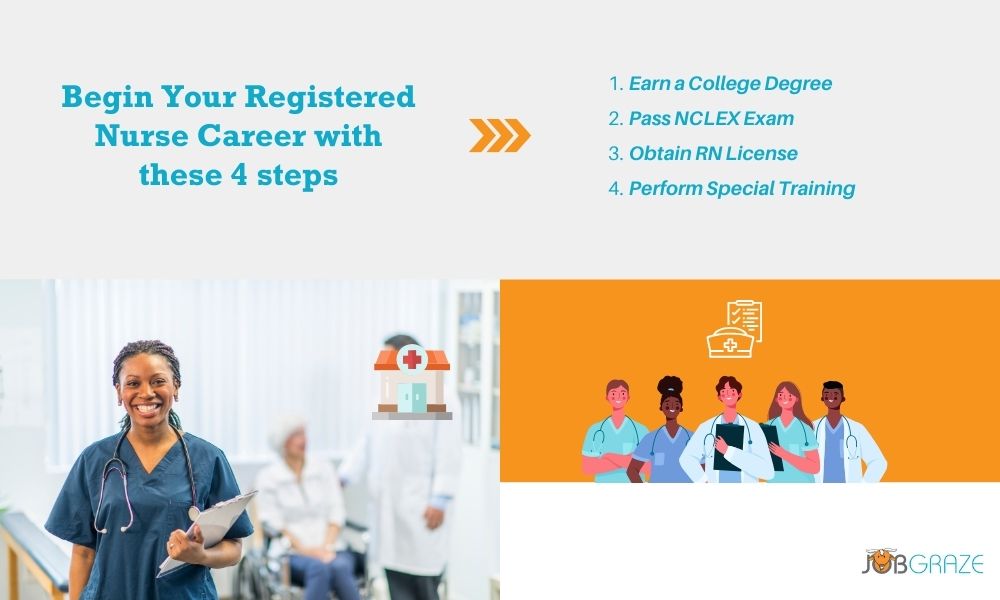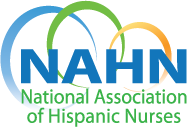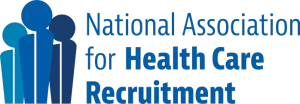
Starting the journey to become a Registered Nurse (RN) isn’t just a job decision – it’s a commendable and rewarding path. Nurses are vital in healthcare, providing care, making important decisions, and standing up for patients. With the growing demand for healthcare professionals, becoming an RN promises a fulfilling career. In this blog, we’ll explore the various types of registered nurses, talk about the current nursing shortage, and outline the important steps to become a registered nurse. If you’re looking to initiate your RN career, this guide is tailor-made for you.
Is there a nursing shortage?
Currently, the nation is experiencing a nursing shortage. The lack of nurses is expected to intensify as Baby Boomers age and their healthcare needs increase. The large population of older adults heightens the demand for geriatric care as well as care for individuals with chronic conditions.
Compounding the shortage is the lack of educational resources in nursing programs, including the number of faculty, clinical sites, budgets, and clinical preceptors. By 2030, one million nurses are expected to retire, further reducing the number of available nursing professionals.
In light of these circumstances, it becomes evident that we urgently need individuals like you to consider becoming a registered nurse. Your potential decision to pursue a career in nursing is not only an investment in your future but also a vital contribution to bridging the widening gap in healthcare. Your role as a RN could make a significant impact, helping address the pressing needs of an aging population and fostering a healthier future for our communities.
Is the nursing field expected to grow?
Due to the high level of respect, job stability, and career satisfaction nurses’ experience, job growth is expected to accelerate in this field in the future. The Bureau of Labor Statistics predicts a rapid growth rate of 6% in nursing employment from 2022 to 2032. If you’re seeking the ideal nursing position, explore the extensive nurse job listings available on JobGraze.
Types of Registered Nurses
There are various types of RNs, each specializing in specific areas to meet diverse patient needs. Here are some common types of registered nurses:
Pediatric RN
Specializing in the care of children, Pediatric RNs work in hospitals, clinics, and pediatrician offices. They provide comprehensive healthcare to infants, children, and adolescents, addressing unique medical needs and developmental stages.
Critical Care RN
Operating in intensive care units (ICUs) and critical care settings, these nurses manage patients with severe injuries or life-threatening illnesses. They offer constant monitoring and specialized care, handling complex medical conditions.
Emergency Room RN (ER RN)
Integral to emergency departments, ER RNs respond to medical crises and provide immediate care to patients with acute injuries or sudden illnesses. Their role demands quick thinking and efficiency in high-pressure situations.
Psychiatric RN
Specialized in mental health, Psychiatric RNs work in hospitals, clinics, or mental health facilities. They care for patients with psychiatric disorders, offering support, counseling, and administering medications as necessary.
Neonatal RN
Focused on newborn care, Neonatal RNs work in neonatal intensive care units (NICUs). They provide specialized care to premature or medically fragile infants, ensuring their well-being during the critical early stages of life.
Public Health RN
Public Health RNs concentrate on community health, engaging in activities to prevent illnesses and promote wellness. This may include involvement in vaccination programs, health education, and community outreach to address broader public health issues.
Travel RN
Adventurous professionals, Travel RNs embark on short-term assignments in various locations. They offer temporary staffing relief in hospitals or healthcare facilities facing staffing shortages, bringing their expertise to different settings.
Home Care RN
Home Care RNs provide healthcare services to patients in their homes, assisting with medical needs, monitoring conditions, and offering support to promote recovery and independence.
Steps to Start Your RN Career

Individuals seeking a career as a registered nurse follow a straightforward path. While most of the steps to earning a license are similar, each state may have different requirements. Some states, like New York, require RNs to hold a bachelor’s degree. To be a registered nurse, here’s what you need to do:
Step 1: Earn a College Degree
Students embarking on a career as a registered nurse must first earn the appropriate degree from an accredited institution. Some states require only an associate degree in nursing. Others, as mentioned, deem that a Bachelor of Science degree in nursing (BSN) is necessary to obtain a license.
First-time college students may aim for a traditional four-year BSN. Individuals holding an associate degree in nursing might opt to pursue an RN-to-BS completion program, which takes 12 to 14 months. College graduates with a degree in a non-nursing field can enter an accelerated nursing program.
Nursing schools have certain course prerequisites. Students must take basic anatomy, physiology, biology, and psychology. Students must also meet math and liberal arts prerequisites. A minimum of a “C” grade is usually necessary for acceptance into quality nursing programs.
Step 2: Pass the NCLEX Exam
Upon earning a degree in nursing, individuals must prove they are prepared to handle the daily rigors and challenges of the job. The National Council Licensure Examination for Registered Nurses (NCLEX or NCLEX-RN) tests this knowledge. Passing the exam is needed to obtain a state license.
Prior to entering a nursing program, it is recommended that students determine what its pass rate is for the NCLEX. The best nursing training programs in the nation offer their students ample resources to help them achieve success on the NCLEX.
Step 3: Obtain a License
After passing the NCLEX, individuals obtain a license in the state in which they aim to practice. Each state has its own licensing requirements. If an individual wishes to practice in multiple states, a license must be obtained for each state unless they honor licenses from other jurisdictions.
Step 4: Receive Specialty Training
An individual is officially a registered nurse after receiving their state license. However, the journey is not over. RNs may be interested in receiving advanced training to become specialists in their field. Earning certification helps an RN earn a larger salary and appeal to a greater number of employers.
RNs can specialize in drug or alcohol addictions and work in recovery centers or hospitals as substance abuse nurses. Cardiovascular nurses specialize in cardiovascular care and work in coronary care units, hospitals, and physicians’ offices that care for patients with heart disease.
A critical care nurse works in intensive care units (ICUs), where severely ill patients undergo around-the-clock observation. Gastroenterology nurses care for patients with gastrointestinal diseases involving the stomach and digestive system. These RNs may assist doctors with colonoscopies and endoscopies.
RNs may seek further training to work as neonatal nurses. These nurses specialize in the care of infants who are born with chronic or life-threatening diseases. Working in corporations as an occupational health nurse is another option; these RNs treat workplace health issues and help prevent injuries.
How Much Does a Registered Nurse Make?
Choosing to become a Registered Nurse (RN) is a smart move, whether you’re starting college or switching careers. The main appeal is the competitive compensation – RNs in the US earn a median annual salary of $73,300. Salaries can vary based on where you work and how much experience you have. It’s a promising path for those looking for a stable and lucrative career.
Browse RN Jobs on JobGraze
If you care about people, have the stamina for the job, and enjoy solving problems, nursing could be a great fit for you. Get the right qualifications – a degree, license, and specialized training – and then head over to JobGraze to find the perfect registered nurse job for you!
Prospective candidates are encouraged to explore our extensive rn job listings, catering to individuals at various career stages, from entry-level to seasoned professionals. We also feature positions that offer remote work options, providing flexibility for job seekers nationwide to secure the perfect RN role in their preferred city.
JobGraze showcases positions from employers specifically seeking candidates for contract jobs. Whether you’re looking to pick up additional shifts or pursue a long-term position, our platform offers a range of flexible opportunities. Grazers can easily customize their schedules, preferences, and rates to attract the right employer match.
Our platform is designed to serve licensed medical professionals with verified credentials, ensuring that you compete with the most qualified candidates in the healthcare field. Best of all, there are no costs for job seekers to put their best foot forward. Explore immediate hiring requests on our user-friendly website or through our convenient mobile app.
Whether you’re a newly licensed RN or an experienced professional seeking more lucrative opportunities, JobGraze provides a valuable online resource to discover the perfect nursing job. Take the first step in launching your nursing career by signing up with us today!









